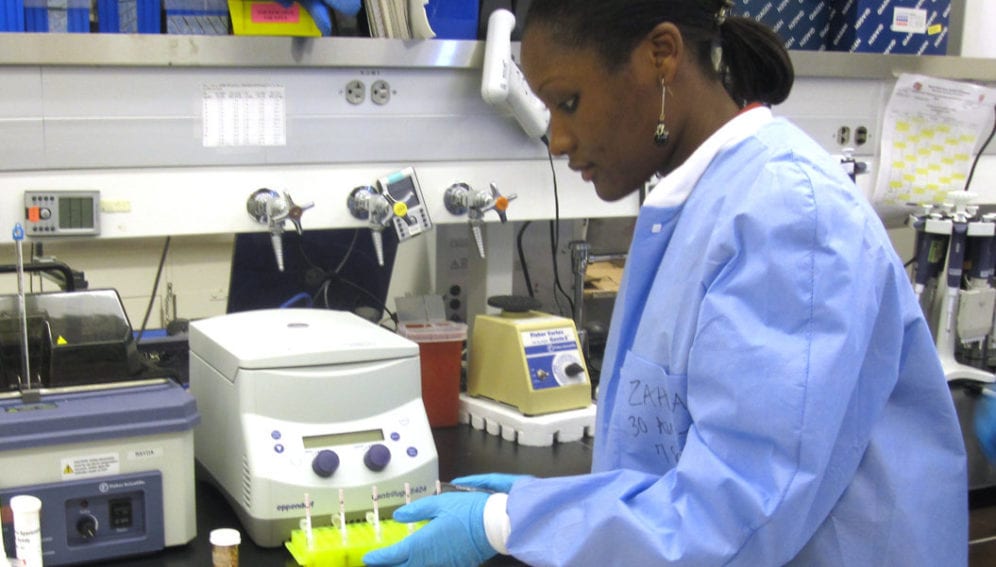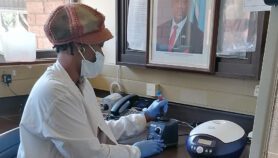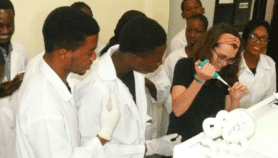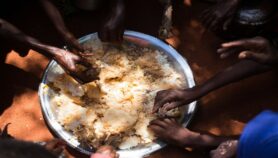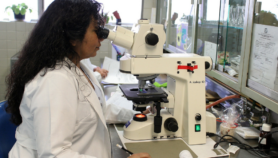By: Paula Park
Send to a friend
The details you provide on this page will not be used to send unsolicited email, and will not be sold to a 3rd party. See privacy policy.
[RABAT, MOROCCO] Africa needs to build its own research institutions to develop drugs for diseases such as Ebola by directing donor countries to support the continent’s spending priorities, a forum has heard.
Donors only support projects that further their own “interests”, panelist Mostapha Bousmina, president of the Euro-Mediterranean University of Fez in Morocco, told participants at the Second African Ministerial Summit for Science, Technology and Innovation held in Rabat, Morocco last month (14-17 October).
“If African countries had fully developed health science systems and centres, the Ebola problem might not even exist.”
Nkem Khumbah, University of Michigan, United States
Instead of only accepting donor money for donor-led priorities, Africans should push their own political leaders to raise money for research, Bousmina, a physical-chemist and rheologist working on nanomaterials and nanotechnology, appealed.
The panel’s moderator, Nkem Khumbah, a mathematician at the US-based University of Michigan, cited the President's Emergency Plan for AIDS Relief (PEPFAR), which he noted reflects US and not African priorities.
PEPFAR has allocated slightly more than US$27 billion to Africa since its launch in 2004, with most of the money going to treatment, (US$8.6 billion), prevention (US$7.1 billion) and care (US$5.4 billion). The drugs with which patients are treated are manufactured in the West or Asia, as are the condoms and other materials needed for prevention, Khumbah said, adding that PEPFAR lacks a dedicated funding stream for research or capacity building.
Under PEPFAR Africans “consume external knowledge” rather than creating institutions in which Africans can build their own knowledge, Khumbah noted. “What we are suggesting for our ministers is that African leadership should proactively engage the US government in science cooperation to generate the partnerships and resources that would reduce this technical imbalance,” he added.
Khumbah explained that donor-to-government negotiations should be more like multilateral meetings where all parties assert their priorities and come to a negotiated agreement, arguing that the Ebola problem points to this need.
“If African countries had fully developed health science systems and centres, the Ebola problem might not even exist,” said Khumbah. “Viruses will keep coming and going. The answer to Ebola is not about getting aid. It’s about developing your own scientific infrastructure.”
The forum noted that biomedical research publications that focus on Africa do not adequately address the continent’s disease burden.
“We have to believe in our own capacity, not wait for help from outside,” the forum’s panel said.
This article has been produced by SciDev.Net's Sub-Saharan Africa desk.


